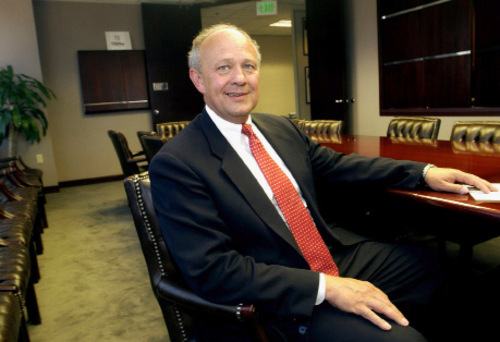This is an archived article that was published on sltrib.com in 2013, and information in the article may be outdated. It is provided only for personal research purposes and may not be reprinted.
Federal immigration reform dominated the headlines this past week as some of Washington's biggest names stepped forward with encouraging proposals. There is increasing understanding that we can, and growing consensus that we must, modernize our immigration system to continue to attract the best and brightest to our shores and ensure we have enough workers to sustain our economy and remain competitive.
The Utah Compact, signed in November 2010, established our state as an immigration leader. Our recognition that immigration reforms should consider the impacts on law enforcement, the economy and families must continue to guide the discussion. The first principle of the Compact makes clear that immigration is a federal issue. Utah business leaders are encouraged to see leadership coming from Congress and the White House.
Last week, Sen. Orrin Hatch joined with Sens. Marco Rubio, R-Fla., Chris Coons, D-Del., and Amy Klobuchar, D-Minn., to propose a significant increase in the number of visas for high-skilled workers. The bill would boost our economy by granting legal status to foreign-born students who earn advanced degrees in science, technology, engineering or math, called STEM fields. This common-sense reform will improve our economy by attracting and retaining the best talent, and secure a return on the investment we have already made in educating foreign students.
On Monday, a bipartisan group of eight senators introduced a comprehensive reform effort. Their proposal called for a workable road map to lawful status for people of good will who are already here, and a reform of our legal immigration system to strengthen the American economy and American families.
The Group of Eight wants to create an effective employment verification system that will prevent identity theft and end the hiring of future unauthorized workers as we improve the process for admitting future workers to serve our nation's workforce needs. These admirable goals should serve as the framework for more detailed legislation.
Sen. Mike Lee, R-Utah, who was originally part of this group of leaders, issued a statement saying he "remains greatly supportive of what the group aims to accomplish" and he "will continue to work with colleagues to solve many of the challenges this important issue presents." We believe the senator can continue to be a productive voice in the immigration discussion and we encourage him and the other members of our federal delegation to unite in common purpose and work as a team to reform America's broken immigration system.
An optimized immigration system would greatly strengthen the U.S. economy. More than 40 percent of Fortune 500 companies were founded by immigrants or their children. High-skilled immigrants strengthen our research work, develop new products and launch new industries. Immigrants are also essential in hourly jobs that support industries that include tourism, hospitality and agriculture.
No one benefits from our outdated and broken immigration system. Bringing undocumented immigrants out of the shadows will enhance our recovering economy and position us for continued growth. Fixing the system will attract and retain the most educated and hardest-working talent for decades to come.
Lane Beattie is president and CEO of the Salt Lake Chamber. Tim Wheelwright is the chair of the chamber Immigration Task Force and a partner at Kuck Immigration Partners.



